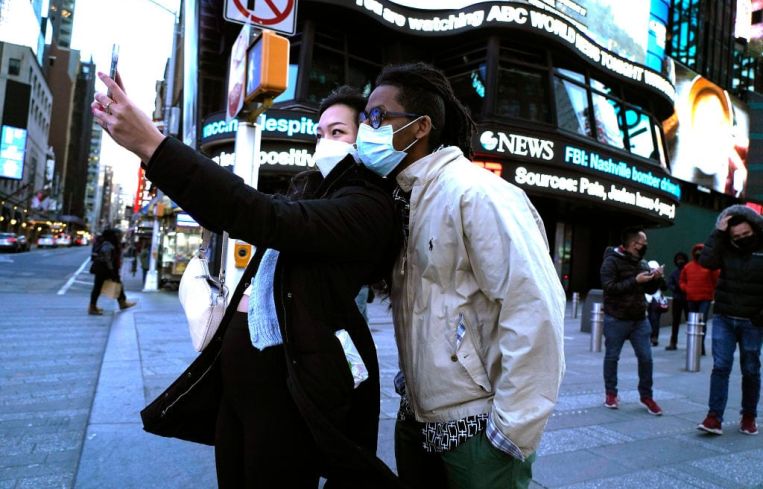Tourists Slowly Returning to New York City, One Year Into the COVID Pandemic
By Nicholas Rizzi March 19, 2021 11:57 am
reprints
Tourists have started to slowly return to New York City, nearly a year after the hospitality industry was decimated by the coronavirus pandemic, The Wall Street Journal reported.
The city’s hotel occupancy rate hit 47 percent for the week ending March 13, its highest weekly point since June, according to STR data cited by WSJ. And foot traffic in tourist hotspot Times Square has also started to see an uptick.
Times Square saw daily traffic numbers of 115,000 people in recent weeks, a 15 percent increase since September, according to Times Square Alliance figures given to WSJ.
While those numbers are an increase from the abysmal figures seen during the pandemic, they’re still a far cry from ones seen before COVID-19.
A comparable week in March 2019 had 87.1 percent occupancy rates in hotels, while Times Square saw average daily traffic numbers of 365,000 people before the pandemic, WSJ reported.
The city — especially in Midtown — has faced numerous hotel closings throughout the pandemic, including the landmark Roosevelt Hotel, where bandleader Guy Lombardo kicked off a New Year’s Eve tradition by broadcasting a performance of “Auld Lang Syne” in 1929. The closures have led to sweeping job losses in the industry.
Last month, Toby Moskovits’ Heritage Equity Partners flagship development, The Williamsburg Hotel, in Brooklyn filed for bankruptcy, carrying between $50 million to $100 million in debt. And a recent survey of landlords nationwide found that the majority think the hotel industry will face the most bankruptcies of any other sector of real estate, slightly edging out the equally battered retail sector.
And, even with the uptick in tourists, some hotel buildings might never welcome travelers again. Flex office provider The Yard announced in February that it will convert the closed Courtyard by Marriott hotel in Herald Square into one of its locations.



